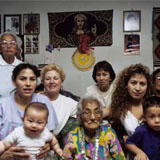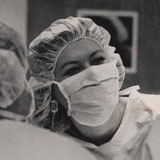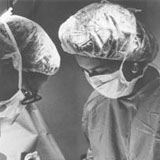Biography: Dr. Lori Arviso Alvord

Year: 1994
Achievement: Dr. Lori Arviso Alvord was the first Navajo woman to be board certified in surgery.
Dr. Lori Arviso Alvord bridges two worlds of medicine—traditional Navajo healing and conventional Western medicine—to treat the whole patient. She provides culturally competent care to restore balance in her patients' lives and to speed their recovery.
As a Stanford-trained surgeon, she developed her technical and clinical skills. Alvord was the first Navajo woman to be board certified in surgery. But when she returned to the New Mexico reservation to work in a Navajo community she discovered, she says, that "although I was a good surgeon, I was not always a good healer. I went back to the healers of my tribe to learn what a surgical residency could not teach me. From them I have heard a resounding message: Everything in life is connected. Learn to understand the bonds between humans, spirit, and nature. Realize that our illness and our healing alike come from maintaining strong and healthy relationships in every aspect of our lives."
Surgery can remedy many ills, but as Alvord worked with her Navajo patients she learned that modern scientific medicine by itself could not reestablish the missing harmony in their health. Navajo healers (hataalii) use song, symbols (such as corn pollen, eagle feathers, masks of the Navajo gods, and sand paintings), and ceremony with their patients, and involve family and neighbors in the process. The psychological and spiritual comfort thus provided can prepare patients for surgery, childbirth, or chemotherapy, for example, and speed their recovery afterwards.
Dr. Alvord is still a surgeon, but she tries to heal, not just fix, her patients by working with families, other practitioners, and constant cultural awareness. She looks for the places in the patient's life, relationships (both personal and with health care providers), and environment where things are out of balance. "Hospitals need to have places where you can see trees and grass and sky and sun... animals nearby, and not just for children and the elderly. Beauty is so important—artwork on the walls, gardens, outdoor porches with a view. A hospital should also have the right smells, the right foods, the right sounds, the things in life that soothe us. We should also avoid the things that are wrong, that cause stress—no harsh sounds, no bright lights, no invasive overhead paging."
In Alvord's New Mexico house, her two worlds sit side by side: a beeper on the table, a cell phone on its charger, and a stack of medical journals that share space with a handmade wood and leather cradleboard. A menagerie of bear fetishes inhabits the mantelpiece.









